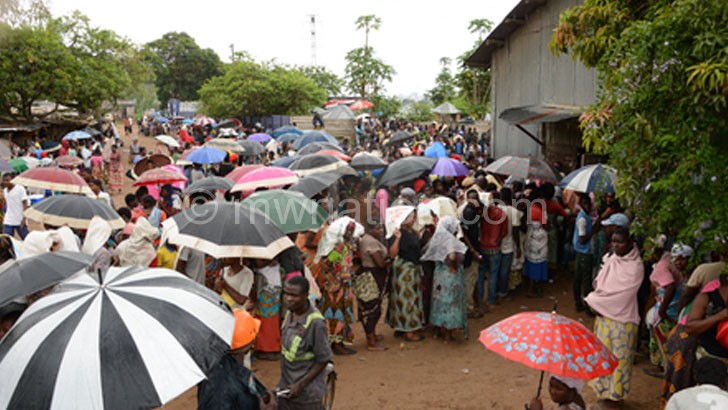ADMARC plots tough changes
The Agricultural Development and Marketing Corporation (Admarc) has proposed a package of reforms to shore up its troubled financial base and service delivery.
The proposals come in the context of the ongoing Public Sector Reforms being led by Vice-President Saulos Chilima.
Information The Nation has gathered shows that Admarc wants government to pay for losses the parastatal incurs when selling maize at subsidised prices and cover costs such as interest charges for holding maize for lean periods, which averts widespread hunger and helps government achieve its macroeconomic objectives.

The produce trader, according to information we have gathered, also wants Capital Hill to pay it for maintaining 205 markets deemed uneconomical. Admarc has a total of 350 markets.
Given that it costs Admarc K292 000 (about $436) to run each of the markets per month, our estimates show that government would have to pay the corporation around K718 million (about $1million) per year to maintain the 205 social markets.
If government cannot swallow this option, the parastatal proposes to put the so-called uneconomic markets on franchise in which private entrepreneurs will buy the rights from Admarc to open and run them.
Such a move, which will have elements of dealership, would not only boost Admarc’s revenue and profitability, but the money raised could also help government cut funding for social services as they will be self-sustaining, according to people close to the proposals.
The parastatal has targeted 20 markets out of the 205 as pilots for the franchise model and projects that it will take 10 years to fully implement this reform whose execution is targeted to start during the 2017/18 financial year.
What is unclear in the franchise proposal, however, is how the social function would work with the social markets under profit-oriented franchise holders.
Also what could raise questions is how the proposed strategic direction—while helping to stem Admarc’s financial bleeding through recovery of operating costs—would help farmers get better prices under the parastatal’s price stabilising role.
Meanwhile, under commercial functions, Admarc is targeting value-addition and crop purchase modalities where it also plans to supplement the commodities purchased by acquiring its own farms to grow crops such as tobacco, pigeon peas and other legumes.
Further, on the financing reform, the institution says it will require a one-off subvention of K3 billion (about $ 4.4million) from government comprising initial working capital of K1.5 billion (about $2.2million) and warehouse maintenance of a further K1.5 billion.
When contacted to explain the proposals last night, Admarc chief executive officer Foster Mlumbe declined to discuss the suggested changes, saying doing so would pre-empt the Public Sector Reform Commission’s decisions.
However, commenting on the proposals, Minister of Finance, Economic Planning and Development Goodall Gondwe, while saying government was already implementing the issue of price subsidy, said there was need for Capital Hill to look at the proposals more deeply.
“Of course, those are mere proposals and they may have to put them to government and then we will see. We have not put off the proposal yet and we need to see their arguments first. There are always pros and cons in such proposals and we have to be looking at both then weigh them before a consideration can be made,” said Gondwe.
But while supporting the idea of the business model, chairperson of Parliamentary Committee on Agriculture Felix Jumbe said subsidies should not be encouraged in the system, “especially consumption subsidy, but what should be encouraged is production subsidy.”
Jumbe said franchising would be a good way forward because most businesses were already following the model. n





